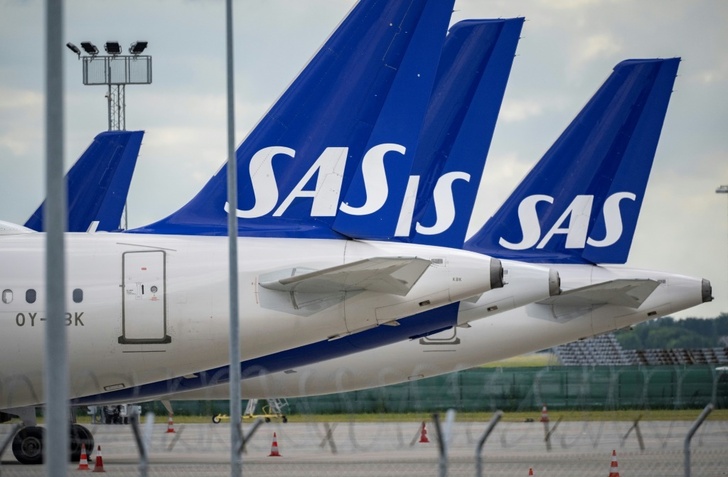Faced with financial difficulties and a massive pilot strike, Scandinavian airline SAS said Tuesday it has filed for so-called Chapter 11 bankruptcy proceedings in the United States, as a part of restructuring plan.
"We simply need to do much more and do it much faster," SAS chairman Carsten Dilling told a press conference where defended what he called "a well thought-through decision."
In the US, Chapter 11 is a mechanism allowing a company to restructure its debts under court supervision while continuing to operate.
The move was made in order "to proceed with the implementation of key elements" of its business transformation plan, the troubled carrier, which employs nearly 7,000 people, said in a statement.
Asked why the company chose initiate the proceedings in the US, rather than Sweden where it is headquartered, Dilling said they had considered several countries where they could file, but "ended up concluding that the US framework is the right one for the company."
Chief executive Anko van der Werff said they expected "to complete the Chapter 11 process in nine to 12 months."
SAS said its "operations and flight schedule are unaffected by the Chapter 11 filing, and SAS will continue to serve its customers as normal," while noting that the ongoing strike by Scandinavian pilot unions would continue to impact operations.
- 'Last thing SAS needs' -
"A strike is the last thing the company needs right now," van der Werff told reporters.
Pilots walked out on Monday after negotiations between the unions and the company broke down.
The pilots are protesting against salary cuts demanded by management as part of a restructuring plan aimed at ensuring the survival of the company, which has suffered a string of losses since the start of the coronavirus pandemic in early 2020.
On Monday, SAS said that the strike "is estimated to lead to the cancellation of approximately 50 percent of all scheduled SAS flights," impacting around 30,000 passengers a day.
SAS management announced in February the savings plan to cut costs by 7.5 billion Swedish kronor ($700 million), dubbed "SAS Forward", which was supplemented in June by a plan to increase capital by nearly one billion euros ($1.04 billion).
Denmark and Sweden are the biggest shareholders with 21.8 percent each.
Denmark said in June it was ready to increase its stake to 30 percent. Sweden has refused to provide fresh funds, but is willing to turn debt into capital.
Norway, which left SAS in 2018, has said it is ready to return to the airline, but only by converting debt into equity.
Suffering, like the rest of the sector, from the impact of Covid-19, SAS cut 5,000 jobs, or 40 percent of its workforce, in 2020. The carrier now had around 6,900 employees at the end of May, a number which fell below 5,000 at the height of the pandemic.
Shares in SAS, already at all-time lows, fell by more than 11 percent in the early hours of trading on the Stockholm Stock Exchange.
SAS's troubles comes as the summer is shaping up to be difficult for European airlines and airports, faced with staff shortages affecting traffic.
After widespread job losses linked to Covid-19, airlines and airports are struggling to recruit new staff in many countries.
jll/spm
© Agence France-Presse
Your content is great. However, if any of the content contained herein violates any rights of yours, including those of copyright, please contact us immediately by e-mail at media[@]kissrpr.com.
Source: Story.KISSPR.com

